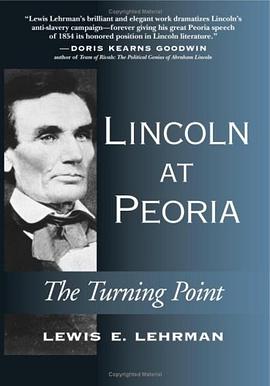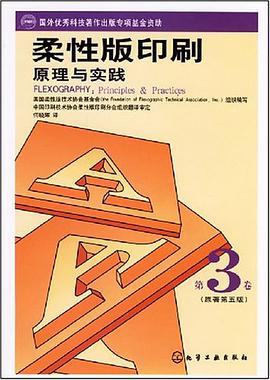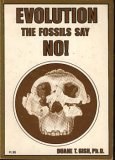

具体描述
"Lincoln at Peoria" tells the tale of a hardworking lawyer in Springfield, Illinois at a political turning point. To understand President Abraham Lincoln, one must understand the private citizen who gave the extraordinary antislavery speech at Peoria on October 16, 1854. This three hour address marked the turning point in his political pilgrimage. It dramatically altered the political career of the speaker and, as a result, the history of America. The book examines the seminal Peoria speech and the historical context in which Lincoln delivered it. While some may argue that Lincoln underwent a transformation upon assuming the presidency in1861, the book s author Lewis Lehrman contends, The great divide between the statecraft of his presidential years and his early legislative years originates with the speech at Peoria in 1854. The book emphasises the unmistakable wholeness of character, genius, and enterprise to Lincoln's public life from 1854 to 1865. Lincoln's comprehensive antislavery case made at Peoria inspired his subsequent speeches, public letters, and state papers. The Peoria speech is also Lincoln's primary statement about the nature of early American history and its peculiar institution of slavery. All of his arguments opposed any further extension of slavery in the American republic, founded, as he argued, upon the Declaration of Independence. That all men are created equal, with the inalienable right to liberty, was, for Lincoln, a universal principle that Americans must not ignore. The author of this book insists that Lincoln believed America must get right with the Declaration of Independence. In 1876, the centennial year of the Declaration, the great black abolitionist, Frederick Douglass summarised Lincoln's achievement: ...measuring him by the sentiment of his country, a sentiment he was bound as a statesman to consult, he was swift, zealous, radical, and determined. Admitted to the Illinois Bar in 1837, having served four terms in the State Legislature and a single term in Congress (1846-1848), Abraham Lincoln had substantially withdrawn from politics between 1849 and 1854. During these five years, his Springfield law practice prospered. Travelling often by horse and buggy, he became a well-respected litigator on the 8th judicial circuit of Illinois. Then, the Kansas-Nebraska Act, one of the most explosive congressional statutes of American history, burst upon the Illinois prairie with its passage in May of 1854. Sponsored by the famous Illinois Senator Stephen A. Douglas, this legislation repealed the prohibition on slavery in that section of the Louisiana Territory north of the 36 30 parallel a restriction on the spread of slavery agreed by North and South in the Missouri Compromise of 1820. The Kansas-Nebraska Act inaugurated an incendiary chapter in the slavery debates of the early American Republic. In response to the Kansas-Nebraska Act, Lincoln launched his antislavery campaign. He delivered the substance of his arguments at Springfield on October 4, 1854, for which there are only press reports. A longer version came twelve days later at Peoria. The Springfield remarks did not survive, but by preparing them meticulously for publication, Lincoln made sure the Peoria text endured. The Peoria address was rigorous, logical, and grounded in thorough historical research marking Lincoln's re-entry into politics and his preparation for the presidency in 1861. Lincoln's contemporaries noted that the speech catapulted Lincoln into the national debates over slavery and into national politics for the rest of his life.
作者简介
目录信息
读后感
评分
评分
评分
评分
用户评价
这本书让我对“公众人物”这个概念有了全新的认识。《林肯在皮奥里亚》不是那种仅仅罗列重要事件和成就的传记,它更像是一部深入挖掘,试图理解林肯在那个特定时期“为何如此”的作品。作者花费了大量的篇幅来解释皮奥里亚这个地方对于林肯的意义。它不仅是他的居住地,更是他政治理念的萌芽地、实践地和初步检验场。书中对当地法律体系的介绍,以及林肯作为律师,如何在日常诉讼中展现他的公正和辩才,都为我们理解他日后在国家层面的法律和道德立场提供了宝贵的线索。我特别喜欢作者对林肯早期公开演讲的分析,他如何从一个略显笨拙的演说者,逐渐找到自己的声音和节奏,如何巧妙地运用修辞和逻辑来影响听众。书中还穿插了大量关于皮奥里亚当地社会风俗的描写,例如各种节日庆典、宗教聚会、甚至是日常的社交礼仪,这些细节都让那个时代的人物鲜活起来,也让我们看到林肯是如何融入其中,又如何在其中保持自己的独立思考。这本书让我觉得,理解一个伟人,就必须去理解他成长的土壤,理解那些在他身上留下印记的人和事,理解那些在他身上汇聚的时代潮流。
评分在合上《林肯在皮奥里亚》的最后一页时,一股难以言喻的复杂情绪涌上心头。这本书并非如我最初预期的那样,是一部简单的历史传记,讲述一位伟人如何在家乡土地上度过一段相对平静的时光。相反,它更像是一面多棱镜,折射出那个时代美国社会深刻的矛盾与挣扎,以及一个尚未完全成熟的政治家,如何在熔炉中淬炼成长。作者以一种近乎考古学家般的细致,从浩瀚的文献和尘封的档案中挖掘出关于林肯在皮奥里亚时期点点滴滴的细节。这不仅仅是对他个人经历的描摹,更是对那个时代特有的地域文化、社会思潮乃至日常生活的生动还原。书中关于当地经济状况的描写,例如农产品贸易的起伏、新近开垦土地的价值波动,以及不同阶层居民的生活状态,都为理解林肯的政治理念和情感基调提供了坚实的基础。那些关于皮奥里亚小镇集市的热闹景象,码头上往来的驳船,以及人们在咖啡馆里高谈阔论的场景,都仿佛跃然纸上,让我得以身临其境,感受那个时代的脉搏。我特别欣赏作者对林肯早期演讲稿的深入剖析,那些在皮奥里亚当地集会上的即兴发言,虽然粗糙,却已显露出他日后雄辩的雏形,以及他对 slavery 问题日益增长的警惕和不安。这本书让我意识到,伟人的成长并非一蹴而就,而是经历了无数次微小却至关重要的思考、实践与调整。它也让我明白,理解一个历史人物,必须将他置于其所处的具体时间和空间中去审视,去体会那些塑造了他的外部环境和内在驱动力。
评分这是一本让我“看见”林肯的书。《林肯在皮奥里亚》没有选择高屋建瓴地讲述历史,而是选择了扎根于具体的地形地貌,具体的人物关系,具体的社会氛围。作者对皮奥里亚当地的地理环境,例如伊利诺伊河的航运价值,森林资源的开发利用,以及这些自然条件如何影响当地居民的生计和观念,都进行了详尽的描绘。林肯在这样的环境中成长,他的思想自然也受到这些因素的影响。我尤其欣赏书中对林肯早期法律实践的描写,他如何在不同案件中展现出的洞察力、同情心和对公平正义的追求。这些案例,不仅仅是枯燥的法律条文,更是当时社会生活百态的缩影。书中的很多段落,都让我仿佛置身于皮奥里亚的那个时代,闻到河水的湿润气息,听到集市的喧闹声,感受到人们对未来的憧憬和忧虑。作者似乎有一种魔力,能够将文字转化为生动的画面,将历史人物从书页中唤醒,让我们能够近距离地感受他们的呼吸和心跳。这本书让我觉得,理解林肯,就是理解他所生活的那个具体的“皮奥里亚”。
评分《林肯在皮奥里亚》给了我一种“触摸”到历史的感觉。它不仅仅是在讲述一个伟人的生平,更是在描绘一个时代的肌理。作者在书中对皮奥里亚当地政治生态的刻画,例如不同党派的势力划分、地方官员的运作方式、以及林肯如何在这种复杂的环境中 navigating,都让我对那个时代的政治生态有了更直观的认识。书中关于林肯与当地报刊记者、地方商界领袖、乃至普通市民的互动细节,都让我看到他作为一个政治人物,是如何与社会各界建立联系,又是如何影响和被影响的。我特别喜欢作者对林肯在集会上发表演讲的场景描写,他如何吸引听众的注意力,如何用通俗易懂的语言阐述复杂的观点,以及他的演讲如何在人群中引起共鸣。这些细节,让我得以窥见林肯作为一位公众演说家的早期成长轨迹。这本书让我明白,任何伟大的成就,都离不开其所处的社会土壤,离不开其与周围世界的每一次互动。林肯在皮奥里亚的经历,正是他日后政治生涯的基石。
评分读完《林肯在皮奥里亚》,我脑海中浮现的,不再是一个孤立的历史符号,而是一个鲜活的、有情感的、在特定环境下成长起来的个体。作者对皮奥里亚当地气候、地形、以及这些自然条件对人们生活方式和思维模式的影响,都进行了细致的描绘。林肯身处其中,他的思考和行动,自然也与这片土地紧密相连。书中对林肯作为一名律师,如何处理涉及当地农民和商人的纠纷的描写,让我看到了他处理复杂社会关系的技巧和智慧。这些案例,虽然规模不大,却为我们理解他日后在国家层面的政治手腕提供了宝贵的借鉴。我特别喜欢书中对林肯在皮奥里亚一些重要政治集会上的演讲稿的分析,他如何从一个初出茅庐的政客,逐渐成长为一个能够引起广泛共鸣的演说家,他的语言风格、论证方式、以及对听众心理的把握,都在这本书中得到了生动的展现。这本书让我觉得,任何一个伟人,都是从平凡的起点开始,经过不断的学习和实践,才最终成就了不凡。
评分合上《林肯在皮奥里亚》,我感到一种前所未有的满足感。这本书的价值,不在于它提供了一个耀眼的历史图景,而在于它细致入微地展现了伟人成长的“幕后故事”。作者对皮奥里亚当地社会结构的深入剖析,例如不同职业群体之间的关系、移民带来的文化冲击、以及宗教信仰在人们生活中的作用,都为理解林肯的价值观和世界观提供了丰富的背景。书中对林肯作为律师处理一些涉及人际关系的案件的描写,让我看到了他不仅仅是一个辩才,更是一个能够理解人情世故、富有同情心的个体。我特别被书中描述的,林肯在皮奥里亚的一些不为人知的社交活动所吸引,例如他参加当地的读书会、与朋友们一起讨论时事、甚至是在乡村小路上与人漫步交谈。这些生活化的场景,让我觉得林肯不再是遥不可及的历史人物,而是和我一样,在生活中摸索、学习、成长的一个普通人。这本书让我看到了,伟人并非天生,而是经过漫长而复杂的磨砺。
评分《林肯在皮奥里亚》的阅读体验,与其说是获取知识,不如说是进行一场沉浸式的对话。作者以一种非常“近”的距离,带领我们观察林肯的日常。他如何处理复杂的商业纠纷,如何调解邻里之间的矛盾,甚至是他作为一个普通市民,在日常生活中遇到的种种琐事。这些看似微不足道的细节,却构建了一个丰满的林肯形象。我被书中对林肯处理土地买卖和合同纠纷的描述所吸引,他那条理清晰的逻辑、公正无私的态度,以及偶尔流露出的温和幽默,都让人印象深刻。这些经历,无疑为他日后在国家层面处理更复杂、更宏大的问题打下了基础。书中对于当时皮奥里亚经济发展的描述,例如运河的修建、铁路的规划、以及这些项目如何影响当地居民的生活和政治格局,都让我对那个时代的社会变迁有了更深刻的理解。而林肯,正是置身于这样的变革之中,他的思考和行动,也因此带有鲜明的时代印记。这本书让我不再将林肯视为一个符号,而是看到一个有血有肉、有挣扎有成长的人,一个在时代的洪流中努力寻找方向的探索者。
评分《林肯在皮奥里亚》是一本让我“重塑”林肯形象的书。它不像许多传记那样,直接将一个已经成熟的伟大人物呈现在读者面前,而是带领我们一步步地去“发现”他。作者对皮奥里亚地区经济发展的历史进程,例如农业的转型、手工业的兴起、以及商业贸易的繁荣,都进行了详尽的介绍。林肯在这样的经济背景下,他的政治理念和对社会问题的关注,都因此带有鲜明的时代特征。书中对林肯在当地担任公职期间的经历,他如何处理政府事务,如何与同事合作,以及如何在地方政治的漩涡中保持自己的独立思考,都让我对他的政治才能有了更深刻的认识。我尤其被书中描写的一些小插曲所打动,例如林肯在一次公开场合因为口误而引起的尴尬,以及他如何用幽默化解危机。这些细节,让我觉得他是一个真实的人,而不是一个被神化的偶像。这本书让我看到了,伟人的成长,是一个充满偶然、挑战与坚持的过程。
评分《林肯在皮奥里亚》为我揭开了一个我未曾想象过的林肯。我原以为他是一位天生的政治家,却在这本书中看到了他初涉政坛时的青涩与摸索。作者对皮奥里亚当地社区自治的描绘,以及林肯如何参与其中,处理地方事务,都让我对其政治生涯的起点有了全新的认识。书中对林肯早期在州议会任职期间的描写,他如何学习立法程序,如何与同事建立关系,以及如何在政治斗争中保持自己的原则,都展现了他作为一名政治家的早期历练。我尤其被书中对林肯处理一些棘手问题的描写所打动,例如如何在地方利益冲突中找到平衡点,如何在舆论压力下坚持自己的立场。这些经历,虽然发生在地方层面,却蕴含着他日后处理国家大事的智慧和勇气。这本书让我觉得,理解一个伟人,就必须去理解他的“根”,理解他最初的起点,理解那些塑造了他的最初经验。
评分《林肯在皮奥里亚》对我来说,是一次意想不到的心灵洗礼。我原以为会读到一个关于政治生涯的枯燥叙述,却意外地被卷入了一个充满人情味和时代烙印的故事。作者在描绘林肯政治活动的同时,并没有忽略他作为一个人,一个丈夫、一个父亲、一个社区成员的真实面貌。书中对林肯家庭生活细节的捕捉,例如他与玛丽·托德·林肯之间偶尔的摩擦,以及他对儿子们教育的担忧,都为这位公众人物增添了鲜活的血肉。我尤其被书中关于林肯如何处理当地居民之间纠纷的片段所打动。他并非高高在上,而是深入民间,倾听各方诉求,用他特有的智慧和幽默来化解矛盾。这种贴近民众的姿态,展现了他作为一名政治家尚未被宏大叙事所掩盖的朴实和善良。书中对当时社会舆论环境的刻画也十分到位,例如报纸上对林肯言行的不同解读,以及不同政治派别之间的激烈辩论,都生动地呈现了一个充满活力但也充满争议的公共领域。阅读这本书,仿佛是与一位老朋友在炉火旁促膝长谈,他娓娓道来自己的过往,那些成长的烦恼、初入政坛的迷茫、以及对理想的不懈追求。我从中看到了一个更加立体、更加真实、也更加可敬的林肯,一个在平凡生活中孕育非凡抱负的普通人。
评分 评分 评分 评分 评分相关图书
本站所有内容均为互联网搜索引擎提供的公开搜索信息,本站不存储任何数据与内容,任何内容与数据均与本站无关,如有需要请联系相关搜索引擎包括但不限于百度,google,bing,sogou 等
© 2026 book.wenda123.org All Rights Reserved. 图书目录大全 版权所有




















